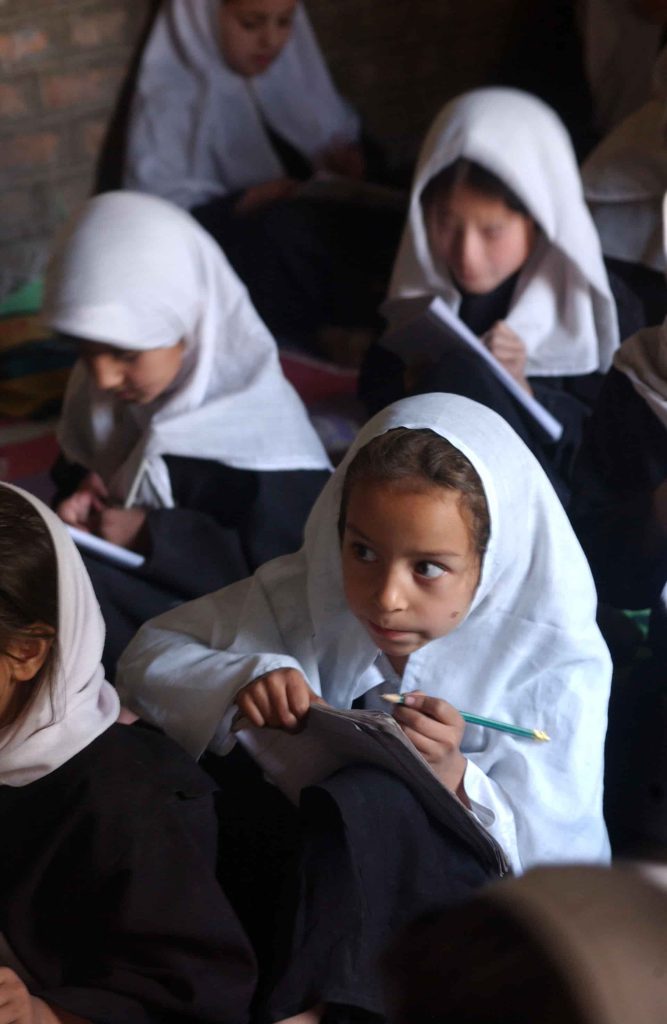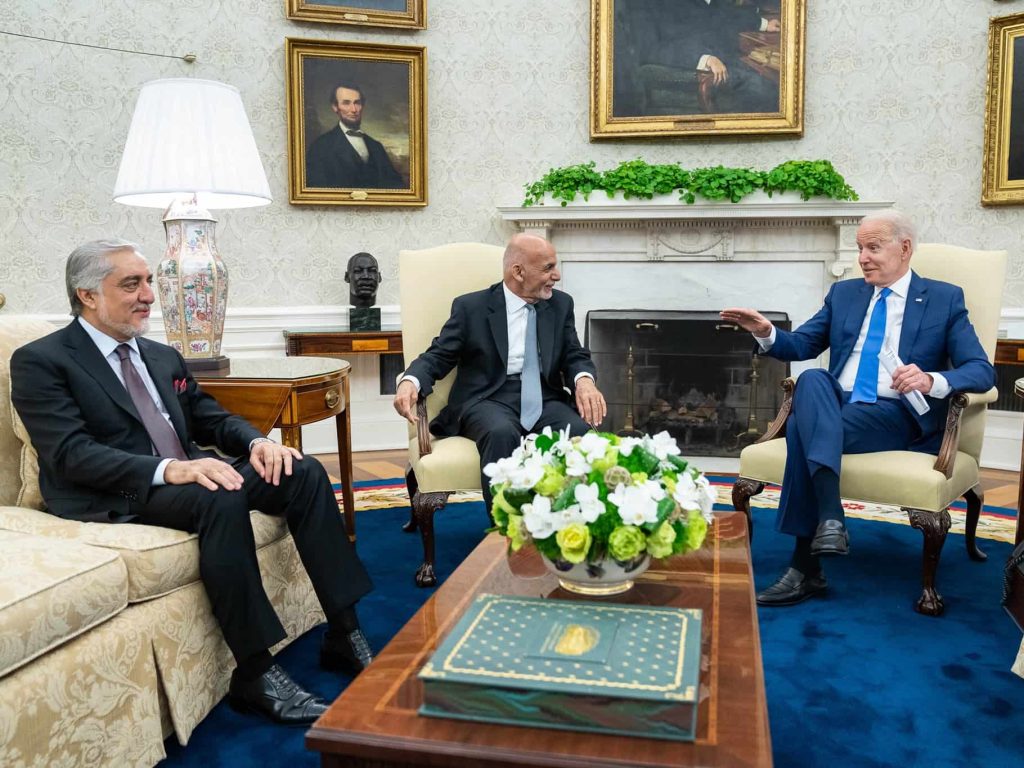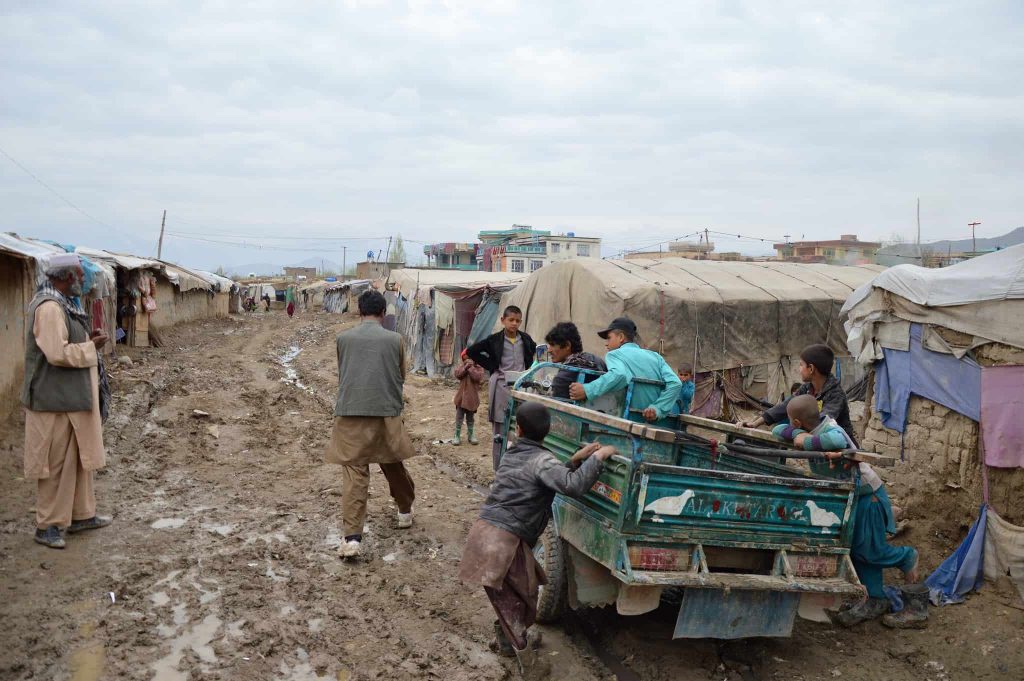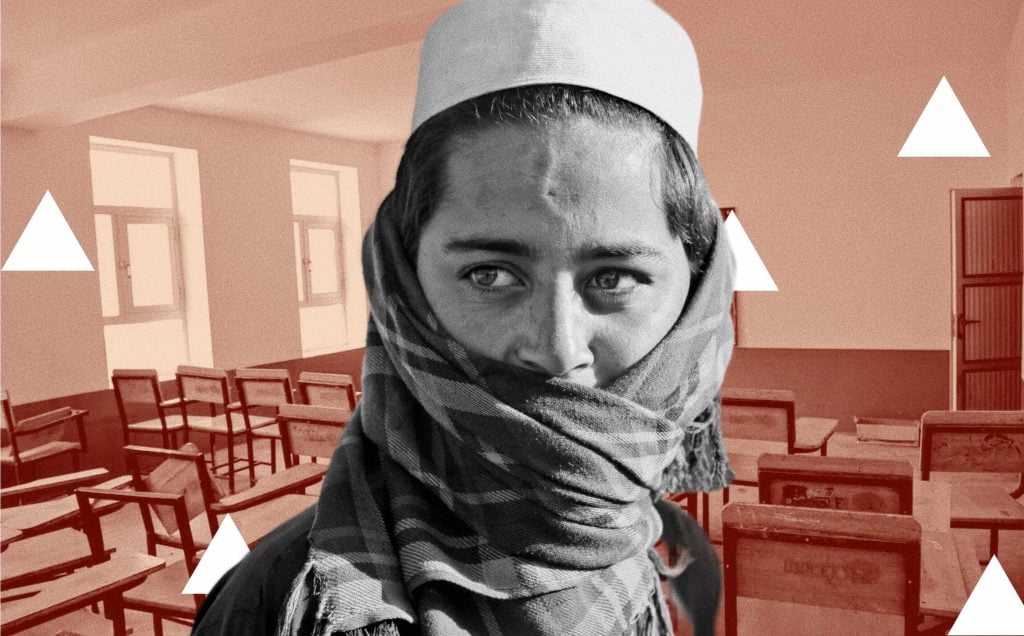The empty chairs in Afghanistan’s classrooms don’t just signify a local crisis; they mark a global failure that jeopardises the future of an entire generation and country.
The historical context: Afghanistan’s education system
Afghanistan is currently the only country in the world where girls are forbidden to go to school. The decision to stop women being able to access school and university by the Taliban in August 2021, has consequently denied millions of girls their fundamental right to education.
Afghanistan has a complex and turbulent history and this has had undeniable consequences on its education system. The department of education was established in Afghanistan in 1913, with the goal of a national education system.
Efforts to expand and improve this occurred over the next 40 years, with girls allowed to access education, but this was frowned upon in comparison to their male counterparts. Internal conflict began in 1978, with disagreements between anti-communist Islamic guerrillas and the Afghan communist government leading to the overthrowing of the government in 1992.
This had an immense impact on the education system as there was no longer a uniform curriculum. The schools and universities were frequently closed and equal opportunities were not provided for boys and girls. Libraries were destroyed, and learning was not prioritised amidst the difficult living conditions.
By 1996, the country was divided into two military groups, the Taliban and the Northern Alliance. After the events of the 9/11 attacks the US intervened in the state of Afghanistan joining with the Northern Alliance. Thousands of teachers became victims of the war or left Afghanistan leading them to have a significant brain drain.
Girls’ education was banned under the Taliban rule, but many women continued to teach in secret. Eventually an agreement was reached and Afghanistan finally had a chance to begin rebuilding its fractured education system.

During this pro-western period new schools were built and thousands of girls previously banned from education, once again had the opportunity to learn. Despite this, many families were still afraid to send their daughters to school, fearing the risk of kidnapping and sexual assault.
Gender disparities and cultural barriers
The gender gap in education therefore remained, it is evident from a young age, but it especially begins to widen around the age of 10, reaching a peak at the age of 14.
There are a number of conflicting factors that inhibit girls’ access to schooling. Girls from poor households in rural areas of the country were especially likely to drop out of school. It is worth noting however, that in Afghanistan there were also large numbers of girls from wealthy households in urban areas that were also not in school. This suggests that gender was the most significant factor in children being out of school, regardless of their financial situation.
Some religious beliefs in Afghanistan assume that girls are only meant to be protected inside the house and this has to an extent discouraged families from sending their daughters to school. Further to this, the problem is accentuated around adolescence as a result of Afghan cultural norms.
According to UNICEF, around 50% of girls are not aware of what menstruation is when they have their first period, this leads to them being confused and embarrassed. They are not aware of the normality of menstruation and are not provided with the support and facilities they need, and this consequently impacts their eagerness to attend school.
As a result of the previous conflict, there was a small proportion of female teachers within the education system even during the Western leaning leadership, and this means that young girls are lacking role models. It may lead to them viewing learning as something for boys, and something that is not suited to them, once again disillusioning them from education. Girls’ schooling remained a problem, but accessibility was improving during the Western leaning administration.
Consequences of the 2021 US withdrawal
The withdrawal of the US troops from Afghanistan in August 2021 once again placed the education system in a precarious place. Whilst the Taliban agreed that they would not place a ban on girls schooling, once the Taliban took back their control, a ban was immediately placed. At the moment, girls have no opportunity to pursue an education.

The impacts of this ban are detrimental and widespread. Young girls feel hopeless and demoralised, many of them are keen to have careers in the future such as being doctors or lawyers, activists or environmentalists, but these dreams have been stripped from them.
Girls have stated that ‘their life has no meaning without education’ and that every house is now filled with ‘pain and sorrow’. It is difficult for women to remain hopeful, when their right to education is repeatedly being taken away from them. It strips women and girls of their identity and purpose; they may feel as if they have no reason to carry on when the future looks so bleak.
Women are tied to their homes, unable to have the career they want or better themselves through a degree. Instead they have no choice but to be tied to men, unable to leave their houses without a male chaperone, they have little freedom or independence, and little hope for the future.
Broader impacts on Afghan society
It is not only women that are impacted by the ban on education, it risks severely affecting the country of Afghanistan as a whole. If half of the population remains uneducated, then far less people are able to work hence negatively impacting the economy of the country.
Educated women are able to contribute to problem solving for crises such as climate change, and would be fundamental in shifting social and cultural norms to ensure more equality within Afghan society. It has been suggested that Afghanistan risks a lost generation since educated women are fundamental for its development. It is impossible for the nation to advance if women continue to be excluded from education and public life.

Save the Children have also highlighted that child marriage rates and poverty will soar if the ban is not lifted. Uneducated girls are more likely to be forced into marriages against their will, and these can often be dangerous and limiting for them. Currently, 54.5% of the Afghan population live below the poverty line, and the number of people living in extreme poverty will only continue to grow if nothing is done to stop the ban on girls’ education.
Attempts at intervention and their limitations
Whilst unsuccessful efforts have been made to re-open access to schools and universities, the ban still remains. The power that the Taliban hold makes the situation extremely difficult to navigate for international organisations as well as individual activists.
The political nuances mean that there is not a straightforward solution to the problem. The United Nations attempted to intervene, given that the ban is a clear violation of human rights, however it was not successful. A ban on all non-governmental organisations within the country by the Taliban has further limited the help that other actors are able to provide.
The Malala Fund has offered $1 million in grants to help education champions and their families evacuate and resettle, they have also supported Afghan education activists and put pressure on the Taliban to reverse its decisions.
Our role in the crisis
We have an international responsibility to help girls and women in Afghanistan; the devastating situation cannot be ignored anymore. Attempts should be made to increase the pressure on authorities in Afghanistan in order for the ban to be lifted and so that a safe commencement of girls’ education can occur.
Additionally, if the ban is to be lifted immediate financial support will be needed in order to support a crumbling education system, organisations should work to ensure that they are able to provide this. Furthermore, where possible it is important to show solidarity with Afghan activists and amplify their voices so that they are able to share their demands for the future.
The severity of this situation, with millions of girls being denied their right to education, cannot be ignored. Currently, the Taliban is continuing to strip girls and women of their basic rights and the world is watching it happen. Some efforts have been made, but we must continue to push forward and demand change if the ban is to be lifted.
As individuals, we should use the freedom we have to ensure the same for others, this can be done by joining and sharing campaigns, supporting activists and writing to local members of parliament and leaders to ask what they are doing to help. Global leaders, organisations and individuals need to show up in this time of crisis, in order to ensure that no girl is left behind.




















